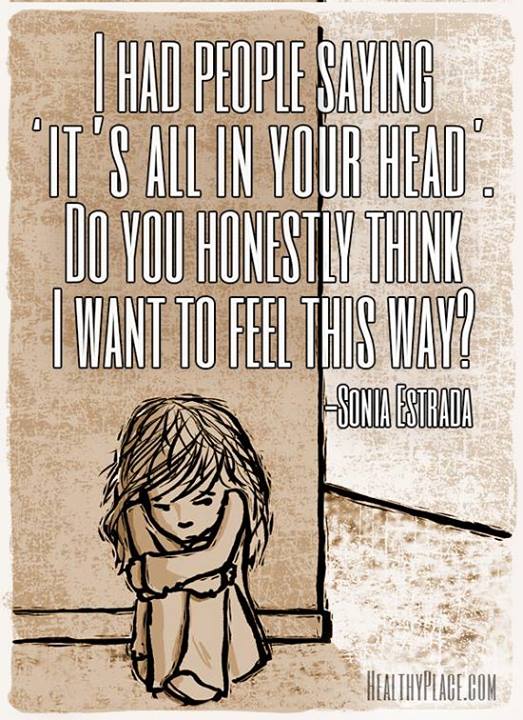
“In any social situation, I felt fear. I would be anxious before I even left the house, and it would escalate as I got closer to a college class, a party, or whatever. I would feel sick in my stomach-it almost felt like I had the flu. My heart would pound, my palms would get sweaty, and I would get this feeling of being removed from myself and from everybody else.”
“When I would walk into a room full of people, I’d turn red and it would feel like everybody’s eyes were on me. I was embarrassed to standoff in a corner by myself, but I couldn’t think of anything to say to anybody. It was humiliating. I felt so clumsy, I couldn’t wait to get out.”
Social phobia, also called social anxiety disorder, is diagnosed when people become overwhelmingly anxious and excessively self-conscious in everyday social situations. People with social phobia have an intense, persistent, and chronic fear of being watched and judged by others and of doing things that will embarrass them. They can worry for days or weeks before a dreaded situation.
This fear may become so severe that it interferes with work, school, and other ordinary activities, and can make it hard to make and keep friends.
While many people with social phobia realize that their fears about being with people are excessive or unreasonable, they are unable to overcome them. Even if they manage to confront their fears and be around others, they are usually very anxious beforehand, are intensely uncomfortable throughout the encounter, and worry about how they were judged for hours afterward.
Social phobia can be limited to one situation (such as talking to people, eating or drinking, or writing on a blackboard in front of others) or maybe so broad (such as in generalized social phobia) that the person experiences anxiety around almost anyone other than the family.
Physical symptoms that often accompany social phobia include blushing, profuse sweating, trembling, nausea, and difficulty talking.
When these symptoms occur, people with social phobia feel as though all eyes are focused on them.
Social phobia affects about 15 million American adults.
Women and men are equally likely to develop the disorder, which usually begins in childhood or early adolescence. There is some evidence that genetic factors are involved. Social phobia is often accompanied by other anxiety disorders or depression, and substance abuse may develop if people try to self-medicate their anxiety.
The use of anti-anxiety drugs may be used and they can help you get through “bad patches” when anxiety becomes too much. It’s possible that these meds can help. Let your doctor guide you.
Understand that social anxiety can be successfully treated with certain kinds of psychotherapy or medications. You probably should find someone who understands what you’re dealing with. They need to be good listeners and have an encouraging voice.
Bringing in a pastor or elder must be considered.
Prayer and counsel are critical. Holding on to God’s promises is necessary and as you deal with this it can be God’s way of strengthening your walk. The Word is packed full of His promises. The Lord knows-He wants you to take up and understand what He wants to give you in this.
“Fear not, for I am with you; be not dismayed, for I am your God; I will strengthen you, I will help you, I will uphold you with my righteous right hand.”
Isaiah 41:10








